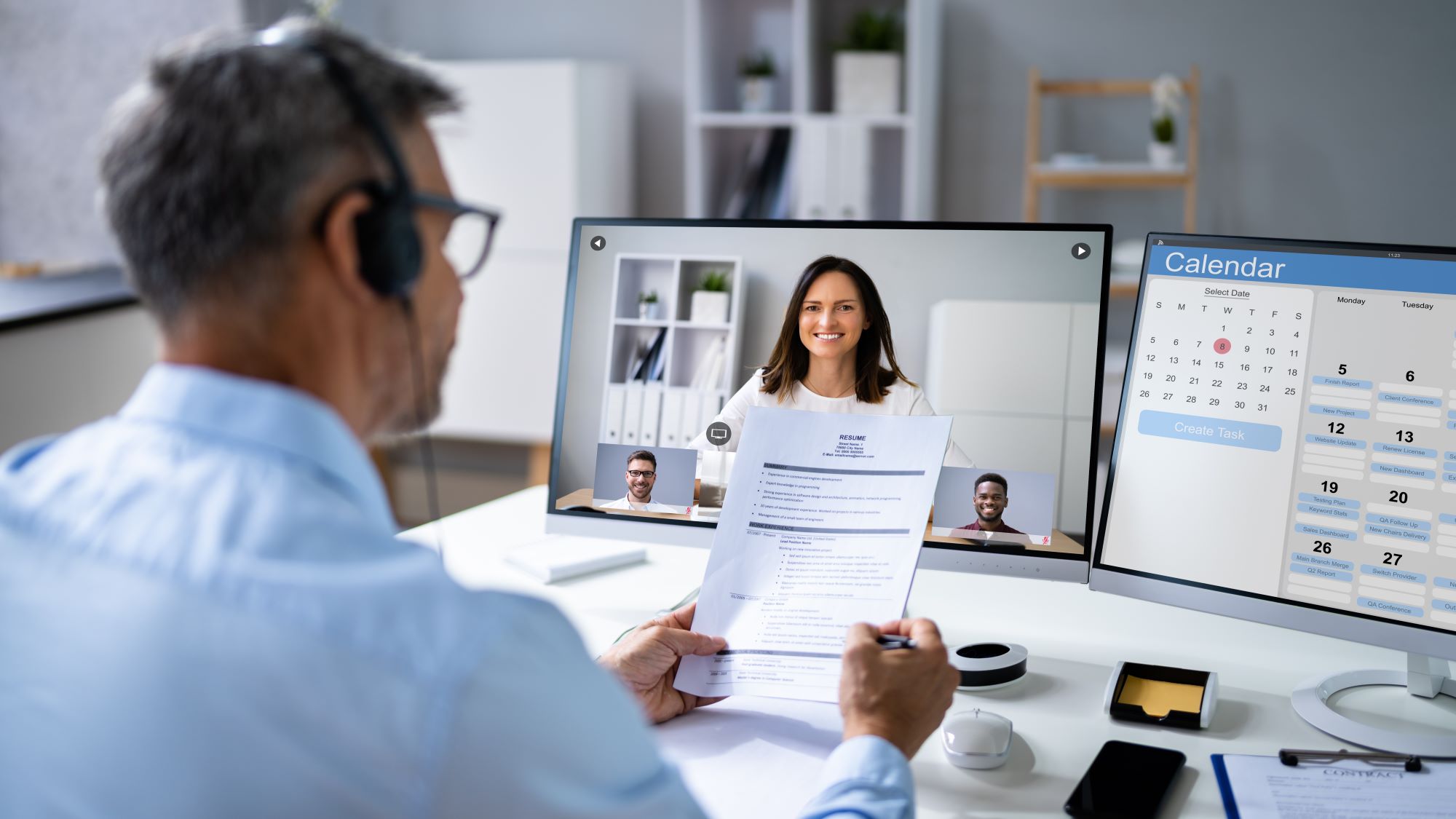Recruiters often prepare their candidates for job interviews, but not all recruiters help prepare the hiring authorities as well. As part of our “white glove” approach, we want to alleviate stress in every part of the matchmaking process. So, we offer interview preparation for both parties.
As a ThinkingAhead client, we hope to provide you with preparation for your next interview by sharing a few best practice reminders, which ensure an equitable and successful process. We recognize that most of these are already part of your common procedure, but it never hurts to sharpen the saw.
Before the interview:
- Have the materials you will want to reference printed in front of you. This will likely include a list of questions, the candidate’s resume, and your scoring/evaluation criteria.
- Be on time. If you are interviewing with a panel, make sure they all join the meeting promptly, if not a few minutes early.
- Have an open and clear mind. You may already know something about one or more of the candidates. Avoid the urge to predetermine who is the right person for the job.
- Use a prescribed form for scoring candidates, gathering your notes, and justifications. This doesn’t have to be scientific. Just keep a list of predetermined ideal qualities for the successful candidate so that you have the same criteria in front of you for each interview.
- If you have multiple interviewers, elect a moderator so that everyone knows who is responsible for moving the conversation forward, keeping time, and managing the cadence. Discuss with your panel beforehand who would like to ask each question.
During the interview:
- Record the interview, if possible. This will allow you and your recruiter to revisit the conversation. This is especially helpful for video interviews.
- Be present and free of distractions. Make sure phone and computer notifications are muted.
- Stay actively engaged and make eye contact. If it is a video interview, your body language will go a long way to make the interviewee feel comfortable.
- Keep to a rough agenda so all candidates have an equal opportunity to impress.
- Stay off mute and respond to stimuli. It’s uncomfortable if candidates make a joke or seek feedback and hear crickets.
- Put your salesperson hat on for your organization. Remember that most candidates are in multiple processes, so they don’t need to take this opportunity. Sell your organization and the role and be authentic.
- Have everyone participate in the conversation. If it is a panel, rotate who asks the questions, or answers candidate questions so all are actively engaged in the conversation.
- Do not discuss compensation, just focus on vetting. Your recruiter will help manage the negotiation process and will be in the middle to make sure that both parties feel positive once a deal is reached.
- Leave 10-15 minutes at the end to allow the candidate to ask questions. They are vetting you as much as you are vetting them.
- All candidates, whether you love them or not, need to leave feeling positive about your organization and how they were treated. People talk.
- Leave the candidate with a clear expectation of when they should expect to hear if they have moved forward in the process.
After the interview:
- Meet with your panel within 24 hours of the interview (if not directly after) to debrief and send your evaluation to your recruiter.
- Keep 15-30 minutes of margin between the interview and your next meeting so you have time to evaluate while the conversation is fresh in your mind.
Whether you are a seasoned interviewer or not, refreshing yourself on best practices will help you make the best impression on top talent and the right decision for your team.




